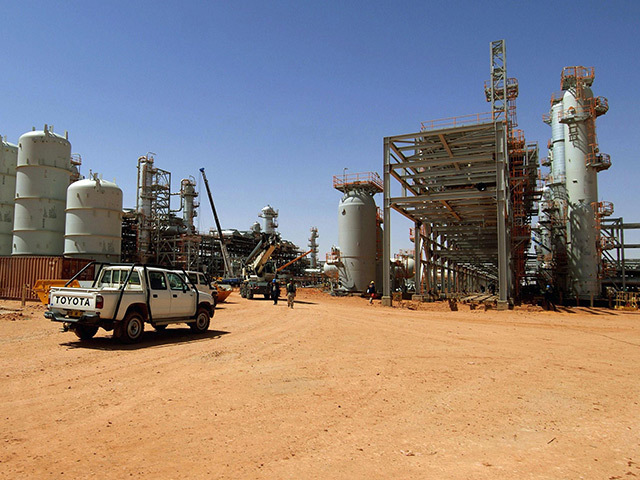
The energy sector has faced terrorism for years, but the threat is likely to grow over the coming 12 months.
Groups affiliated with al-Qaeda are gaining power in countries caught up in the “Arab Spring”; terrorists are becoming more of a concern in the Sahel and Yemen-based groups are attempting to develop more sophisticated weapons, posing a concern not just for the Middle East but for the wider world.
There are grounds for optimism in some countries, such as Turkey and Colombia but, overall, the year is likely to see more terrorist attacks affecting the energy sector rather than fewer.
Yemen can easily be described as a “wild card” country for many reasons.
Its reputation for beauty and rich cultural heritage continues to be eclipsed by the presence of radical Islamist groups, many of which continue to take Western governments by surprise.
The pace of attacks by such groups has increased over recent years, with foreign nationals and energy interests being increasingly commonly targeted.
Kidnappings, assassinations and bombings will remain a major concern for oil and gas companies, while al-Qaeda in the Arabian Peninsula is also thought to be developing explosives designed to bypass international aviation security measures.
The group therefore casts a shadow not just over Yemen’s energy industry, but over a much wider sphere, including the West.
Groups affiliated with al-Qaeda are also gaining power in Syria and Iraq.
The breakdown in law and order which accompanied the Syrian uprising has created an ideal breeding ground for terrorists.
In both countries a lack of state authority coupled with the presence of a frustrated populace potentially sympathetic to more radical strands of political Islam has provided terrorists with breathing space and a pool of would-be recruits.
Conditions are likely to worsen further this year. While Syria has a relatively small oil and gas sector, Iraq is re-emerging as an oil giant.
For now, most of the attacks in the country are taking place in the central provinces. The oil-rich south and Kurdish Regional Government (KRG) territory in the north have been spared so far but even here there has been a rise in terrorist attacks over recent months.
While not a major oil and gas hub, Afghanistan is also likely to see terrorist groups gain influence, with implications for the wider region.
The situation may not necessarily explode once foreign troops pull out, but the relevant threat groups are likely to consolidate their power base which will pose more of a regional concern in the longer term.
The discovery of new oil and gas fields in Africa, particularly in East Africa, has opened up opportunities to develop other markets.
However, moving into areas where local residents have little experience of the sector and high expectations brings its own set of concerns for oil companies breaking new ground.
For example, unrest over a perceived lack of local job opportunities has driven violent protests in western Kenya and southern Tanzania over the past year and further incidents of this sort are to be expected as the sector builds up and local communities adjust to its presence.
In more established African oil and gas markets, political tensions were never far from the surface last year, with civil unrest a continuous, low-level concern in Angola and Nigeria, for example.
Boko Haram will remain a major concern in Nigeria but its activities remain largely limited to the north and east of the country rather than the south.
Mozambique, another relative newcomer on the African scene, faces a potential resurgence in terrorism with opposition party Renamo growing increasingly militant in central provinces such as Sofala.
Attacks against extractive industries in Mozambique may rise as a result, although offshore fields are unlikely to be severely impacted.
The main countries of concern on the African continent are arguably those in the Sahel and Sahara, including Mali, Niger and Chad.
Much like parts of Syria and Iraq, the lack of overarching authority in remote parts of these countries and rising local frustrations in many areas provide an ideal base of operations and a recruiting ground for radical Islamist groups.
A year on from the devastation of the In Amenas attack in Algeria, such groups remain intent and willing to conduct similar raids. Indeed the success of the operation means that many groups may seek to replicate it.
The outlook above is likely to sound grim, but there are some grounds for optimism in the murky world of terrorism.
In Turkey, peace talks between the government and Kurdish rebel group the PKK could end the trend of pipeline bombings which have been an ongoing concern in the south-east of the country – although all of the gains made in the talks are reversible.
Peace talks between the Colombian government and the Farc rebel group show similar promising signs, although progress will be slow and attacks against the energy sector will persist throughout this new year.
Nonetheless, even with such daunting terrorist threats posed around the world there are still numerous methods and procedures than can be implemented to help manage the level of risk.
From physical protection to staff training the energy industry has long been a leading, proactive sector at tackling risk exposure. Oil and gas firms are therefore among the best prepared to tackle what is likely to be yet another bad year for terrorism.
